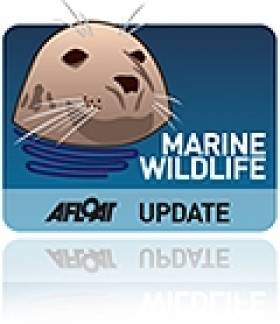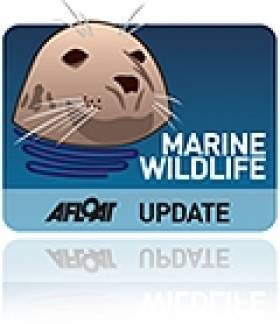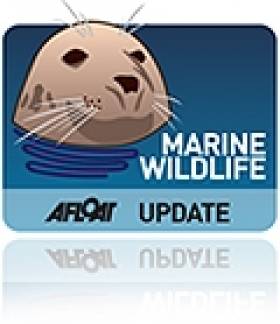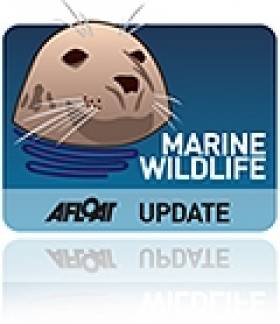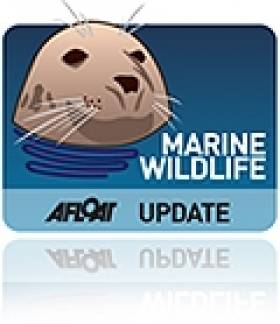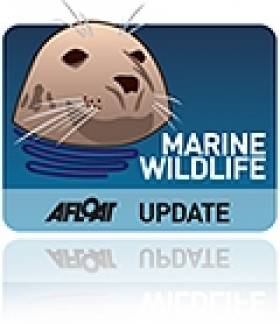Displaying items by tag: Dolphins
Aerial Survey of Whales Begins
The first ever Air Corps marine animal survey of whale and dolphin activity in Irish waters is set to begin today, the Irish Times reports.
A survey team accompanied by members of the Irish Whale and Dolphin Group (IWDG) were scheduled to take off from Casement Aerodrome this morning headed for the southeast coast, where humpback whales have recently been sighted near Curracloe and Hook Head.
According to the IWDG, 19 whale and dolphin species have been recorded in Irish waters since 1948, the most common sightings being harbour porpoises.
The Irish Times has more on the story HERE.
Vets Get to Grips With Whale, Dolphin Post-Mortems
The Irish Whale and Dolphin Group's (IWDG) recent workshop on the post-mortem examination of stranded dolphins and whales is hoped to encourage the building of much needed experience for Ireland's vets dealing with marine animals.
More than 20 veterinarians from across the country attended the workshop in Athlone, where they were shown how to carry out a post-mortem from a research perspective and taken through the post-mortem protocol, as well as the collection of samples for various parameters from bacteriology to genetics.
"The IWDG have long advocated that the post-mortem examination of stranded cetaceans should be carried out by veterinary pathologists to determine their cause of death and provide samples for life-history studies," said the group's Dr Simon Berrow.
New Pontoon Key to Saving Stranded Whales, Dolphins
A new pontoon intended to refloat marine animals such as beached whales and dolphins along the Atlantic seaboard was demonstrated at the weekend ahead of the Galway Science & Technology Festival.
The Irish Times reports that divers, scientists and local volunteers were among those participating in the training exercise on Gurteen beach, near Roundstone, which involved rescuing and refloating a dummy pilot whale.
Dr Simon Berrow of the Irish Whale and Dolphin Group (IWDG) which ran the exercise said he hoped other coastal communities would follow the example with their own training sessions, given the growing number of strandings along Ireland's west coast.
The new pontoon - which was put on display in the festival exhibition at NUI Galway on Sunday - was purchased with funds raised by the local community and a BBC television team producing the latest series by popular adventurer Monty Halls.
Monty Halls Gives Talk on 'Capturing Giants'
Renowned diver Monty Halls is set to present a public talk on his marine animal work filming whales, sharks and dolphins around the world tomorrow night (7 October).
Halls, who has been in Ireland since April making his latest documentary series for the BBC, has been assisting the Irish Whale and Dolphin group (IWDG) with its research on whales, dolphins and basking sharks in Irish waters.
The diver, filmmaker and former Royal Marine, who is also a popular motivational speaker and performance coach, will talk on his experiences filming and diving with marine mammals around the world, and will surely provide some great entertainment.
The talk, part of the Tales of the Whales Lecture Series organised by the IWDG and the Galway-Mayo Institute of Technology (GMIT), begins at 8pm on Thursday 7 October in Lecture Room 1000 at GMIT, Dublin Road, Galway. The event is free and all are welcome to attend.
Cork Harbour Dolphins Jumping
Pictures of Dolphins jumping off Roches Point in Cork harbour have been captured for youtube viewers courtesy of a Cork fishing trip this week. The three harbour dolphins jump clean out of the water in the clip below from about 2:20 on the timeline. A Lovely marine animal sight on a summers evening!
Energetic Atlantic Dolphins are Fussy Eaters
Atlantic Dolphins choose to eat high-energy fish to suit their energetic lifestyles, scientists have found.
A study of dolphins off the French coast shows that dolphins shy away from less calorie-dense prey in favour of high-energy food. This dispels a myth that dophins are opportunistic feeders that take any food that comes their way.
The study was carried out by Dr Jerome Spitz and other scientist at the University of La Rochelle in France, who looked at the eating habits of short-beaked common dolphins.
This species are the most common type of dolphin in nearby Atlantic waters. The team studied the stomach contents of dolphins caught accidentally in tuna drift nets to see what they ate. They then compared what they found in the dolphins' stomachs with what surveys of trawling fish catches indicated as plentiful in the same waters.
What they found was that dolphins actively select their prey based on its energy density, preferring deep-sea species like lanternfish instead of fish that have lower energy densities.
The dolphins studied turned their noses up at fish with under 5kJ of energy per gram, and sought out rarer breeds of fish that had a higher energy rate.
Two favourites were less common species of lantern fish, the Kroyer's lanternfish and the Glacier lanternfish which have 7.9kJ and 5.9kJ per gram respectively. Other less energetic predators, like sharks, are less fussy and take anything that's going.
Irish Whale and Dolphin Group Online Conference Tomorrow
Irish Whale and Dolphin Group (IWDG) Sightings Co-ordinator Pádraig Whooley will be presenting at this weekend's TEDX event in the West Cork Hotel, Skibereen, Co. Cork tomorrow which will be streamed live on the internet and can be viewed here.



























